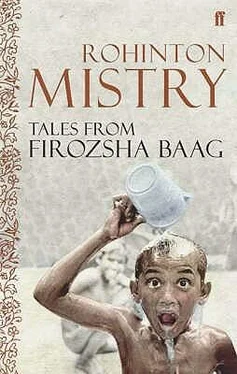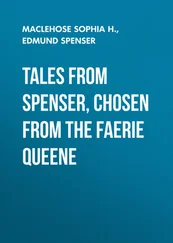Rohinton Mistry - Tales From Firozsha Baag
Здесь есть возможность читать онлайн «Rohinton Mistry - Tales From Firozsha Baag» весь текст электронной книги совершенно бесплатно (целиком полную версию без сокращений). В некоторых случаях можно слушать аудио, скачать через торрент в формате fb2 и присутствует краткое содержание. Год выпуска: 2006, Издательство: Faber & Faber, Жанр: Современная проза, на английском языке. Описание произведения, (предисловие) а так же отзывы посетителей доступны на портале библиотеки ЛибКат.
- Название:Tales From Firozsha Baag
- Автор:
- Издательство:Faber & Faber
- Жанр:
- Год:2006
- ISBN:нет данных
- Рейтинг книги:3 / 5. Голосов: 1
-
Избранное:Добавить в избранное
- Отзывы:
-
Ваша оценка:
- 60
- 1
- 2
- 3
- 4
- 5
Tales From Firozsha Baag: краткое содержание, описание и аннотация
Предлагаем к чтению аннотацию, описание, краткое содержание или предисловие (зависит от того, что написал сам автор книги «Tales From Firozsha Baag»). Если вы не нашли необходимую информацию о книге — напишите в комментариях, мы постараемся отыскать её.
Tales From Firozsha Baag — читать онлайн бесплатно полную книгу (весь текст) целиком
Ниже представлен текст книги, разбитый по страницам. Система сохранения места последней прочитанной страницы, позволяет с удобством читать онлайн бесплатно книгу «Tales From Firozsha Baag», без необходимости каждый раз заново искать на чём Вы остановились. Поставьте закладку, и сможете в любой момент перейти на страницу, на которой закончили чтение.
Интервал:
Закладка:
Jehangir left, carrying that vision of the Spanish dancer in his head. He tried to imagine the stamp inhabiting the pages of his album, to greet him every time he opened it, with the wonderful sparkle in her eyes. He shut the door behind him and immediately, as though to obliterate his covetous fantasy, loud voices rose inside the flat.
He heard Mrs. Mody’s, shrill in argument, and the doctor’s, beseeching her not to yell lest the neighbours would hear. Pesi’s name was mentioned several times in the quarrel that ensued, and accusations of neglect, and something about the terrible affliction on a son of an unloving father. The voices followed Jehangir as he hurried past the inquiring eyes of his mother, till he reached the bedroom at the other end of the flat and shut the door.
When the school week started, Jehangir found himself looking forward to Thursday. His pulse was racing with excitement when visual period came. To save his hanky this time he kept some paper at hand.
Eric did not have to provide much guidance. Jehangir discovered he could control Eric’s reactions with variations in speed, pressure, and grip. When it was over and Eric offered to do it to him, he did not refuse.
The weeks sped by and Jehangir’s collection continued to grow, visual period by visual period. Eric’s and his masturbatory partnership was whispered about in class, earning the pair the title of moothya-maroo . He accompanied Eric on the flicking forays, helping to swell the milling crowd and add to the browsing hands. Then he grew bolder, studied Eric’s methods, and flicked a few stamps himself.
But this smooth course of stamp-collecting was about to end. Patla Babu and Jhaaria Babu broke their long tradition of silence and complained to the school. Unlike marbles and supari , it was not a question of a few paise a day. When Eric and Jehangir struck, their haul could be totalled in rupees reaching double digits; the loss was serious enough to make the Babus worry about their survival.
The school assigned the case to the head prefect to investigate. He was an ambitious boy, always snooping around, and was also a member of the school debating team and the Road Safety Patrol. Shortly after the complaint was made he marched into Jehangir’s class one afternoon just after lunch break, before the teacher returned, and made what sounded very much like one of his debating speeches: “Two boys in this class have been stealing stamps from Patla Babu and Jhaaria Babu for the past several weeks. You may ask: who are those boys? No need for names. They know who they are and I know who they are, and I am asking them to return the stamps to me tomorrow. There will be no punishment if this is done. The Babus just want their stamps back. But if the missing stamps are not returned, the names will be reported to the principal and to the police. It is up to the two boys.”
Jehangir tried hard to appear normal. He was racked with trepidation, and looked to the unperturbed Eric for guidance. But Eric ignored him. The head prefect left amidst mock applause from the class.
After school, Eric turned surly. Gone was the tender, cajoling manner he reserved for Jehangir, and he said nastily: “You better bring back all those fucking stamps tomorrow.” Jehangir, of course, agreed. There was no trouble with the prefect or the school after the stamps were returned.
But Jehangir’s collection shrunk pitiably overnight. He slept badly the entire week, worried about explaining to Burjor Uncle the sudden disappearance of the bulk of his collection. His mother assumed the dark rings around his eyes were due to too much reading and not enough fresh air. The thought of stamps or of Patla Babu or Jhaaria Babu brought an emptiness to his stomach and a bitter taste to his mouth. A general sense of ill-being took possession of him.
He went to see Burjor Uncle on Sunday, leaving behind his stamp album. Mrs. Mody opened the door and turned away silently. She appeared to be in a black rage, which exacerbated Jehangir’s own feelings of guilt and shame.
He explained to Burjor Uncle that he had not bothered to bring his album because he had acquired no new stamps since last Sunday, and also, he was not well and would not stay for long.
Dr. Mody was concerned about the boy, so nervous and uneasy; he put it down to his feeling unwell. They looked at some stamps Dr. Mody had received last week from his colleagues abroad. Then Jehangir said he’d better leave.
“But you must see the Spanish dancing-lady before you go. Maybe she will help you feel better. Ha! ha!” and Dr. Mody rose to go to the cupboard for the stamp. Its viewing at the end of each Sunday’s session had acquired the significance of an esoteric ritual.
From the next room Mrs. Mody screeched: “Burjorji! Come here at once!” He made a wry face at Jehangir and hurried out.
In the next room, all the vehemence of Mrs. Mody’s black rage of that morning poured out upon Dr. Mody: “It has reached the limit now! No time for your own son and Sunday after Sunday sitting with some stranger! What does he have that your own son does not? Are you a baap or what? No wonder Pesi has become this way! How can I blame the boy when his own baap takes no interest…”
“Shh! The boy is in the next room! What do you want, that all the neighbours hear your screaming?”
“I don’t care! Let them hear! You think they don’t know already? You think you are …”
Mrs. Bulsara next door listened intently. Suddenly, she realized that Jehangir was in there. Listening from one’s own house was one thing — hearing a quarrel from inside the quarrellers’ house was another. It made feigning ignorance very difficult.
She rang the Modys’ doorbell and waited, adjusting her mathoobanoo . Dr. Mody came to the door.
“Burjorji, forgive me for disturbing your stamping and collecting work with Jehangir. But I must take him away. Guests have arrived unexpectedly. Jehangir must go to the Irani, we need cold drinks.”
“That’s okay, he can come next Sunday.” Then added, “He must come next Sunday,” and noted with satisfaction the frustrated turning away of Mrs. Mody who waited out of sight of the doorway. “Jehangir! Your mother is calling.”
Jehangir was relieved at being rescued from the turbulent waters of the Mody household. They left without further conversation, his mother tugging in embarrassment at the knots of her mathoobanoo .
As a result of this unfortunate outburst, a period of awkwardness between the women was unavoidable. Mrs. Mody, though far from garrulous, had never let her domestic sorrows and disappointments interfere with the civilities of neighbourly relations, which she respected and observed at all times. Now for the first time since the arrival of the Modys in Firozsha Baag these civilities experienced a hiatus.
When the muchhiwalla arrived next morning, instead of striking a joint deal with him as they usually did, Mrs. Mody waited till Mrs. Bulsara had finished. She stationed an eye at her peephole as he emphasized the freshness of his catch. “Look bat , it is saféd paani ,” he said, holding out the pomfret and squeezing it near the gills till white fluid oozed out. After Mrs. Bulsara had paid and gone, Mrs. Mody emerged, while the former took her turn at the peephole. And so it went for a few days till the awkwardness had run its course and things returned to normal.
But not so for Jehangir; on Sunday, he once again had to leave behind his sadly depleted album. To add to his uneasiness, Mrs. Mody invited him in with a greeting of “Come bawa come,” and there was something malignant about her smile.
Читать дальшеИнтервал:
Закладка:
Похожие книги на «Tales From Firozsha Baag»
Представляем Вашему вниманию похожие книги на «Tales From Firozsha Baag» списком для выбора. Мы отобрали схожую по названию и смыслу литературу в надежде предоставить читателям больше вариантов отыскать новые, интересные, ещё непрочитанные произведения.
Обсуждение, отзывы о книге «Tales From Firozsha Baag» и просто собственные мнения читателей. Оставьте ваши комментарии, напишите, что Вы думаете о произведении, его смысле или главных героях. Укажите что конкретно понравилось, а что нет, и почему Вы так считаете.












